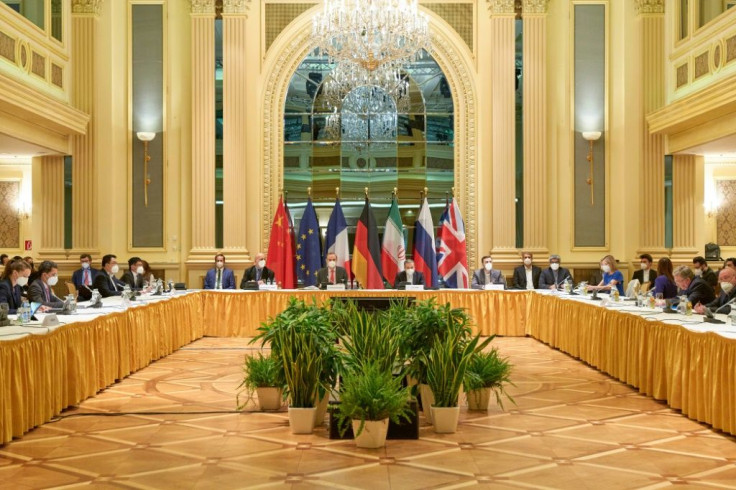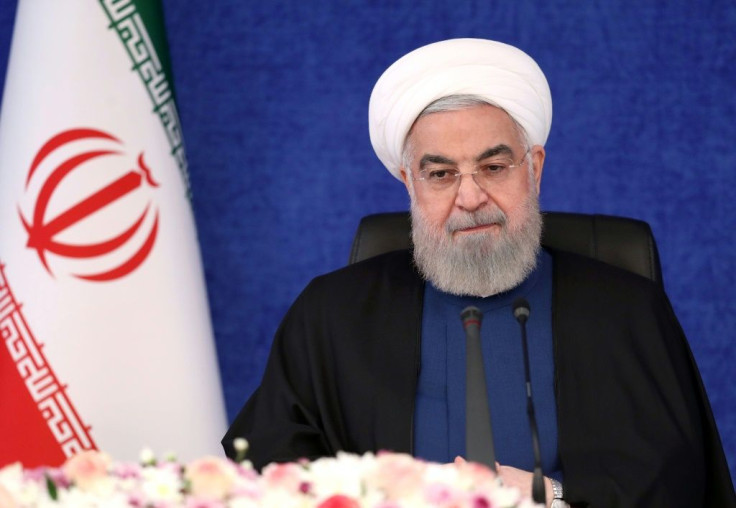Iran Sees Progress On Reviving Deal But US, EU Says Work Needed
The United States and European Union said Tuesday that more work was needed to revive a 2015 agreement on Iran's nuclear program, although Tehran reported progress after the latest diplomacy.
The talks aimed at returning the United States under President Joe Biden to the 2015 deal took their second break, with US envoy Rob Malley set to return to Washington for the rest of the week.
EU diplomat Enrique Mora hailed "progress made over the last two weeks" but said "ongoing challenges" remained to put the accord -- which curbs Iran's nuclear programme in exchange for sanctions relief -- back on track.
But for Iranian President Hassan Rouhani, the "negotiations have achieved 60-70 percent progress."
"If the Americans act honestly, we will reach a conclusion in little time," Rouhani said, as quoted by state news agency IRNA.

State Department spokesman Ned Price, asked about Rouhani's optimism, was more cautious.
"Yes, there has been some progress but there remains a long road ahead," Price told reporters in Washington.
"I think it's fair to say that we have more road ahead of us than we do in the rearview mirror."
The deal was put on life support in 2018 when then US president Donald Trump bolted from the accord and slapped sweeping sanctions on Iran, which in turn started ramping up its nuclear activities.
Biden supports the agreement -- with which Iran was in compliance before Trump's sanctions -- but has called on Tehran to roll back its measures before the United States ends sanctions.

In a possible nuance, Jake Sullivan, the US national security advisor, said Sunday that the United States will lift sanctions once it has "clarity and confidence that Iran will fully return to compliance" -- not necessarily after it has already done so.
Iran has proposed that the European Union coordinate with both countries to synchronise their returns to compliance.
Mora said Tuesday that a third expert group had been created to address "sequencing issues" after two groups were set up to look into nuclear issues and sanctions lifting.
Another sticking point remains on which sanctions to lift, with the Biden administration saying it is only discussing nuclear measures imposed by Trump -- not other US actions taken over human rights and other concerns.
Iran has returned to negotiations despite boosting its uranium enrichment to 60 percent -- closer but still below weapons grade -- in response to sabotage at a nuclear facility purportedly carried out by Israel, which strongly opposed the 2015 agreement.
Diplomats from Britain, China, France, Germany, Iran and Russia have been meeting since early this month in a luxury Vienna hotel, while US diplomats are participating indirectly in the talks from a nearby hotel.
Talks are set to resume next week, according to an EU statement.
Mikhail Ulyanov, Russia's ambassador to Vienna, wrote on Twitter that the parties "decided to take a break to allow the delegations to do homework and consult with the capitals".
Ulyanov on Monday had said negotiations had entered "the drafting stage" though "practical solutions" were "still far away".





















